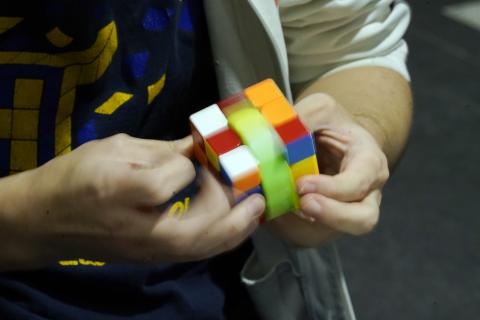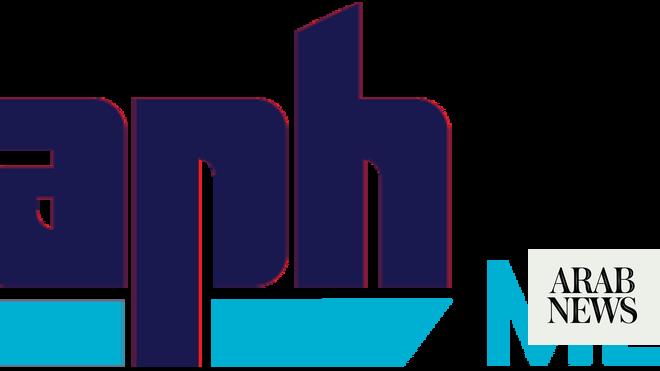
Iman Jodeh, the Democratic nominee for Colorado’s House of Representatives District 41, speaks to Arab News
NEW YORK CITY: In the 1980s and 1990s, Colorado’s Muslim community was made up of fewer than 30,000 people, and there were only five mosques in the entire state.
“It was really small, but we were happy,” said Iman Jodeh, the Democratic nominee for Colorado’s House of Representatives District 41.
Ever since she was a child, on the first day of Ramadan, Jodeh has sent teachers a letter, written on the mosque letterhead, saying: “For the next 30 days, Muslims will be fasting. So if your Muslim students seem lethargic by the end of the day, please understand why.”
Today, there are over 100,000 Muslims in Colorado.
“Those Muslims are starting to make up a big voting bloc, a big portion of our legislators’ constituency. And it is incumbent upon those legislators to make sure they are listening and taking into account the views of the constituents, regardless of their race, creed or religion. And I constantly remind them of that,” Jodeh told Arab News by phone.
The Democrat hopeful grew up in the shadow of two Gulf wars, and shortly after the 9/11 attacks, the Afghan and the Iraqi wars. She remembers the anonymous phone calls at dinnertime threatening to kill her father Mohammed, and recalls her mother, who wears a hijab, being frightened to leave the house.
“It changed my life. In the wake of 9/11, I was a sophomore in college and had not declared my major yet. Two days later, I was a political science major and, again, speaking to crowds having to defend my religion.”
Being a first-born, first-generation American, with perfect English, understanding the cultural nuances of America, I had to walk that line of also understanding the Arab heritage and Islamic culture and nuances, and marrying those two to be able to communicate the need of being an Arab Muslim American woman.
Iman Jodeh
Jodeh, a trained political scientist, spent the years following those events advocating for the Muslim community and the Middle East, “the most misunderstood region of the world, and the people who call it home.” She taught about the Israeli-Palestinian conflict at the University of Denver, held cultural events about the region and discussed Islam.
The most effective results, according to Jodeh, came via her non-profit “Meet the Middle East,” which invited Americans to take an “educational immersion journey” to the region to meet various stakeholders there, from Arab Bedouin to Palestinians living in Nablus, and both right-wing and left-leaning Israelis.
The travelers were invited to spend time in Jordan, Egypt, and sometimes Iraq and Morocco.
“From the Berbers of Morocco to the Kurds of Iraq, all these cultural and regional nuances must be understood before you can even attempt to understand the complexities of the conflict, and the kaleidoscope that make up the Middle East,” Jodeh said.
“There are things we can highlight to prove to the world that the Muslim world is one of the most fascinating places to be: There are nine women heads of state in the Muslim world, and the US has yet to see our first. It was Arabs and Muslims who discovered contagion; Arabs and Muslims who discovered latitude and longitude.
“Some of the first and oldest libraries were in Alexandria and Baghdad. And one of the oldest universities was in Morocco, founded by a woman.
“The more we can show that to Americans, the more we’re going to see further understanding and commitment to ending violence in the Middle East, as well as asymmetrical policies from the US and how we look at the region.”
Jodeh said her love for Palestine is ingrained. She was never introduced to it. She did not have a first language: It was Arabic and English her entire life. She was never just American. She was Palestinian American.
I am running to make the American dream a reality for everyone. The American dream has become harder and harder to realize. It is not a trite or cliched phrase for me. I am someone who is the product of a family who came here to realize that dream and with the cost of living, the lack of health care, our climate being threatened, our lack of criminal justice reform, civil rights being accosted... These are all things that are hurting the American dream. This is un-American, this is not the Colorado that I want to see.
Iman Jodeh
“This is my identity, I will never abandon this narrative, because I feel I have an obligation to all Palestinians everywhere to advocate when I can.
“The age of learning, that renaissance period is coming. But we have to get through our dark ages before we can get there. And, unfortunately, that is what we are witnessing today in the Middle East. And it’s heartbreaking.
“But the majority of people in the Middle East are under the age of 35, people like myself. We are just learning how to step outside dictatorship and implement something that we have known our entire lives to be true, which is democracy.
“Democracy is not a concept that is new to the Arab world. Shariah law has paved the way for democratic processes like social welfare,” she said.
To Jodeh, being a Muslim and a progressive Democrat complement each other. She gained her knowledge of Islam from her father, a Palestinian immigrant who co-founded the largest mosque in the Rocky Mountain region, and took his daughter with him when he taught or gave speeches on Islam. That put her in contact with scholars whom she still consults today.
In Aurora, a city she calls home and “one of the best and most diverse cities in the nation, a true reflection of America,” Jodeh has been working at the Interfaith Alliance of Colorado, where she speaks, often as a Muslim voice, on contentious bills, such as Equal Pay for Equal Work.
“I testified that, 1,400 years ago, God came down with a verse in the Qur’an: ‘I never fail to reward any worker among you, for any work you do, be you male or female — you are equal to one another.’
“It was ironic to me as a woman following a religion that is often deemed as primitive, that this was prescribed to the people 1,400 years ago.
“In Islam, there’s a chapter in the Qur’an called ‘Al-Nisa’ or ‘The Woman.’ There is not a chapter called ‘The Man.’
“What’s beautiful about the Qur’an is that it grants women rights not granted to women in the West until the 1920s,” Jodeh said.
“The fact that those rights were laid out for women so early on is proof of the sanctity of a woman in Islam: Her right to divorce, to own land, to take part in government, to own her own business. These were all things that have been practiced and continue to be practiced.”
The Democratic Party primaries in Colorado will take place on June 30.












